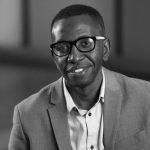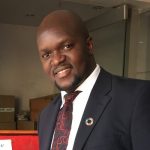When the pandemic forced government lockdowns in the African nation of Togo, poor, rural households were thrown into uncertainty and needed help fast. In partnership with the country’s government, data.org’s Inclusive Growth and Recovery Challenge awardees the Center for Effective Global Action (CEGA), based at UC Berkeley, and GiveDirectly worked together to deploy data science and machine learning to effectively bring Novissi, an innovative cash transfer program, to those who needed it most.
The initiative was a success—an example of data for good in action.
But when other African countries expressed a desire to adopt Novissi, it became clear that scaling up would be significantly hindered by a major limiting factor: talent capacity.
“For programs like this to be sustainable, we—and that’s a collective we—really need to bolster the data science talent that already exists on the African continent, and connect this talent with opportunities for impact at scale,” said Carson Christiano, CEGA executive director.
Africa has one of the fastest growing tech sectors in the world, and has a history of being early adopters of new technologies, as well as a young population that is eager to learn. But building the talent pool to match these data-friendly characteristics requires a thoughtful, intentional approach. Mapping that strategy was the centerpiece of discussion during data.org and CEGA’s joint webinar, “Cultivating Capacity: Building Data Science and Data Centers Across Africa.”
Growing the Talent Pipeline
data.org has made this a key priority, launching the Capacity Accelerator Network (CAN) in January 2022 to increase skills and support for social impact organizations’ capacity to be data driven and deliver transformative change. The goal is that, by 2032, data.org will create one million purpose-driven data professionals, trained through global accelerators and digital public resources like those available through the continuously-expanding data.org Resource Library.
CAN Program Director Dr. Ronda Železný-Green moderated the panel, made up of experts on data for social impact who are working to build a more skilled workforce in their respective spheres of influence. At the same time that their collective efforts are underway to upskill existing workers, there is also a bottom-up movement to grow the pipeline.
What we struggled with a bit at the start is that without local examples of what data science can do, it's difficult for the students to appreciate skilling in data science,
Engineer Bainomugisha Associate Professor of Computer Science and the Chair of the Department of Computer Science Makerere University
Engineer Bainomugisha is an associate professor of computer science and the chair of the Department of Computer Science at Makerere University in Uganda, where 80 percent of graduate students are now choosing to focus on artificial intelligence and data science. The demand is driven in part by the need. Across the public, private, and nonprofit sectors, data science is increasingly looked to as a fundamental driver for building efficiency, increasing impact, and ensuring accountability.
At Makerere, though, the demand has also been driven by an intentional effort to make data science more accessible.
“What we struggled with a bit at the start is that without local examples of what data science can do, it’s difficult for the students to appreciate skilling in data science,” Bainomugisha said.
To address the gap in exposure and understanding, the university established a research lab exclusively focused on AI and data science. The lab and its research brings examples of data science to life, spanning a range of applications with local relevance, like agriculture, health, and environmental monitoring. Students need to see themselves and their lived experiences reflected in the field.
“We are using these examples of research as a way to train the students. That doesn’t only stop at training the students, but also demonstrating to the local stakeholders in government and civil society on what you can actually do with data science solutions within the local context,” he said.
We create an enabling environment for civil society, private sector, and other actors to come to the table, talk to governments, and really identify where the shared needs in that particular sector are; define where there is demand for access to data, tools, infrastructure, or capacity support
Davis Adieno Director of Programs Global Partnership for Sustainable Development Data (GPSDD)
Related Event
Cultivating Capacity: Building Data Science and Data Centers Across Africa
This event occurred on February 23 at 12pm ET / 9am PT / 5pm GMT / 8pm EAT
How can greater data science capacity across Africa increase the effectiveness of NGO’s and governments serving local populations? Join the Center for Effective Global Action (CEGA) and data.org for a roundtable discussion exploring the building blocks required to build robust localized data science capacity that can accelerate social impact projects…
Improving Access and Inspiring Action
Davis Adieno, the director of programs for the Global Partnership for Sustainable Development Data, agreed that it’s not just the potential talent that needs to see this work in action. The government and political apparatus often needs convincing, too.
“If you don’t get the politics right, then you are likely to fail,” he said.
Understanding that politics can be an overwhelming barrier to success, Adieno’s organization works to bring people with varied backgrounds and experiences together to build relationships, forge partnerships, and illustrate the shared benefit of the use of data science for social impact. That includes opportunities for peer-to-peer learning so that best practices can be replicated and scaled up and mistakes can be avoided.
“We create an enabling environment for civil society, private sector, and other actors to come to the table, talk to governments, and really identify where the shared needs in that particular sector are; define where there is demand for access to data, tools, infrastructure, or capacity support,” he said.
A community building approach to learning and development is also at the heart of Solar Sister, an organization that trains and supports women to deliver clean energy solutions to homes in rural African communities. Improving access to and understanding of data is essential for this burgeoning workforce to be successful. This is especially true in sub-Saharan Africa, where the scarcity of consumer and market data has been identified as a major barrier to innovation across the continent.
“We’re investing in data science in a way that we’ve never done before, and it’s allowing us to scale more systematically and also to help our entrepreneurs maximize their business potential,” said Solar Sister’s Nigeria Country Director Olasimbo Sojinrin.
Working with the geospatial company Frame, on a project funded by data.org, Solar Sister is creating maps that provide market insights in communities, like employment and socioeconomic data. Entrepreneurs can explore new territories and decide where they should focus their attention in selling products to new neighborhoods.
“What we’re trying to do is to amplify our impact by providing unprecedented insight into market potential for the women and the communities that we’re working in,” Sojinrin said. “We are able to harvest this data and try and put it in a bite-sized way such that all they get is an SMS with the four new areas in which they can expand to. So by the time it’s getting to them, it’s getting to them in a way that they can digest and a way that makes them act really fast.”
We're investing in data science in a way that we've never done before, and it's allowing us to scale more systematically and also to help our entrepreneurs maximize their business potential
Olasimbo Sojinrin Chief Operating Officer Solar Sister
While there was broad consensus on the panel that skills building and talent development remain a top concern, there was recognition that it isn’t the only barrier to break down in order to build Africa’s data capacity.
“In many African contexts, it’s quite difficult to get the data in the right formats and also at the right time,” Bainomugisha said. “The data collection methods being used are not necessarily up to speed of producing the data in a timely manner, in which case, it means that by the time the data is actually made available, maybe it has lost the value to have meaningful data science solutions.”
Adieno points out that the private sector is among the largest producers of data and also leads on innovation. Partnerships and cross sector collaboration to accelerate data sharing between social impact organizations and the private sector are building momentum in Africa. An example Adieno uses is that, in the wake of a natural disaster, a country can’t afford to wait for a public survey or census. Mobile data, however, can help locate people and track displacements in near real time.
When those kinds of data are more transparent and accessible, the applications are endless — as is the potential for social impact.
“The biggest opportunity, for me, is the ability to use data to address some of the most important societal challenges,” Sojinrin said. “I think it would really take the continent further to where we want to be.”
To learn more about building data capacity, watch the full webinar online, access the data.org Resource Library, and get your organization started with the data.org Data Maturity Assessment.



